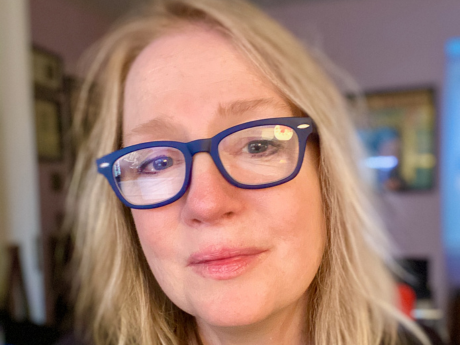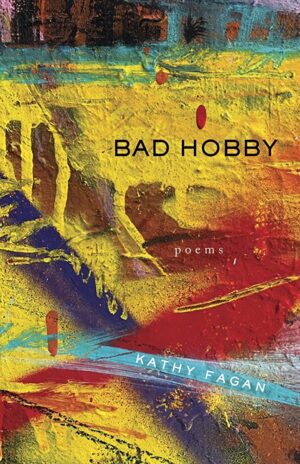Award Winners
William Carlos Williams Award - 2023
Kathy Fagan

School
These days, just before dawn, I find myself
asking mom if I can stay home from school.
I teach school now and mom is dead, but
when I was a kid and said I didn’t want to go,
she wouldn’t make me. She’d pass a cool palm
over my forehead and get on with her day.
Sometimes we’d nap together, but mostly she
went to her job and I’d be alone all day.
I don’t remember what I did, and she never
once asked me, never once asked why
I wanted to stay home, and so I didn’t ask
myself. She must have trusted me, or not
much cared, which may be trust’s result.
I stayed home because some days it felt
perilous to be seen, and other days it felt
perilous not to be, and these mornings it is
so much both that I do not tell my students
or family because I think they must trust me,
and because I think they don’t much care
whether I’m alone all day with them or not.
From Bad Hobby (Milkweed, 2022). All rights reserved. Reprinted with permission.

Craig Morgan Teicher on Kathy Fagan's Bad Hobby (Milkweed Editions, 2022)
Kathy Fagan’s Bad Hobby is profoundly awake to, and utterly alive in, its grief—electricity surges through these poems as they struggle with the circumstances of middle age: a mother who “is dead now” and a father who “is needy as a child / and cannot think to comfort me.” These poems also remember “the ill-fitting / and specific loneliness of children” as a way to reckon with childlessness, which “is both good and bad, I think, / And it is a third thing, too, that is neither of these things.”
And somehow, Fagan manages to be funny, her subtle jokes landing harder for their freight of pain: “Don’t ever smoke, Kath, / Dad says, ‘it’s a bad hobby,’ / Scrambling his words, forgetting / Our ages and both our pasts.” Again and again, Fagan sifts these facts, turns them around in her hands, worries them like pocket stones. She tries to throw them away, but the damn truth always ends up back in her pocket: “When my wings close they / close on nothing.”
This, I think, is some of the most urgent work of poetry: to let the eyes adjust to the dark between words, to really see what’s there, and not to turn away or turn back. Shuttling between a kind of disarming casualness and a taut formality, Fagan can tell us how “Mice drink the rainwater before dying” and “my dead vocalize / my name, or pieces of it.” These lonely poems make us less alone, and, more than anything, they’re beautiful, dazzling monuments to life’s breathtaking disappointments.
*
Kathy Fagan’s sixth poetry collection is Bad Hobby (Milkweed Editions, 2022), available both in print and audio. Her previous book, Sycamore (Milkweed, 2017), was a finalist for the 2018 Kingsley Tufts Award. Newly named a Guggenheim Fellow for 2023-24, Fagan’s work has appeared in venues such as The Atlantic, The New York Times Sunday Magazine, Poetry, The Nation, The New Republic, Kenyon Review, The Academy of American Poets Poem-A-Day, The Pushcart Prize Anthology, and Best American Poetry. Fagan co-founded the MFA Program in Creative Writing at The Ohio State University in Columbus, Ohio, where she teaches poetry and co-edits The Journal/OSU Press Wheeler Poetry Prize Series.
